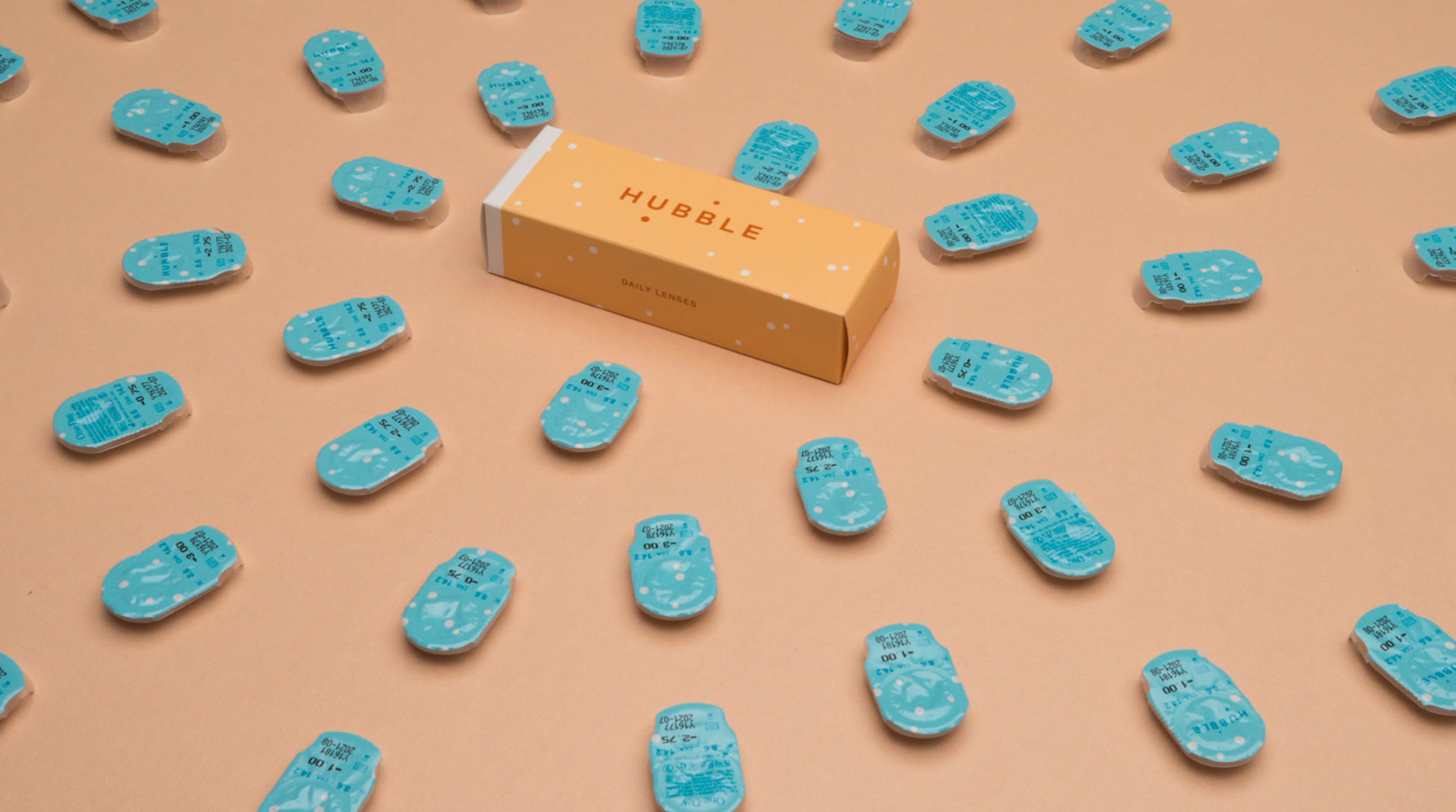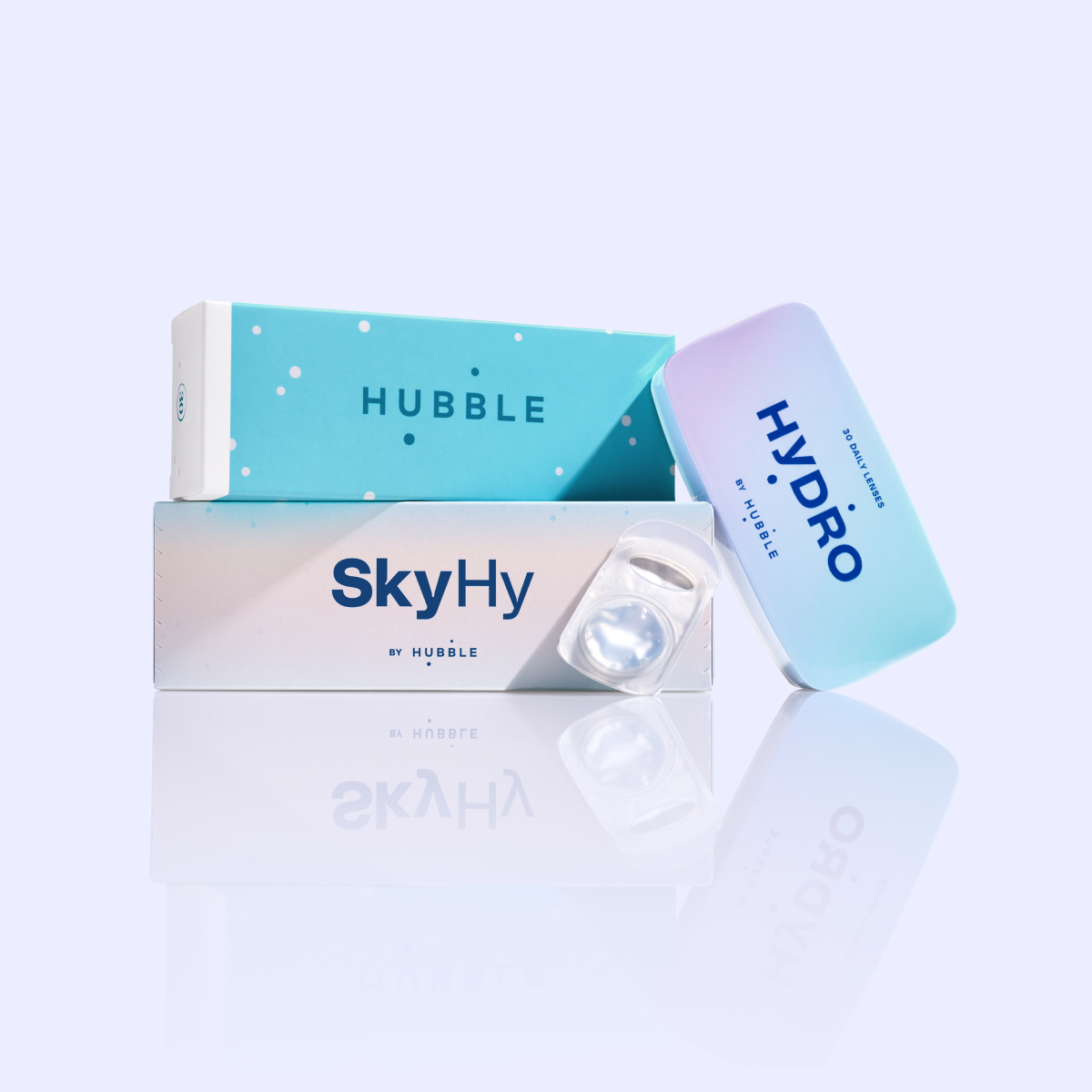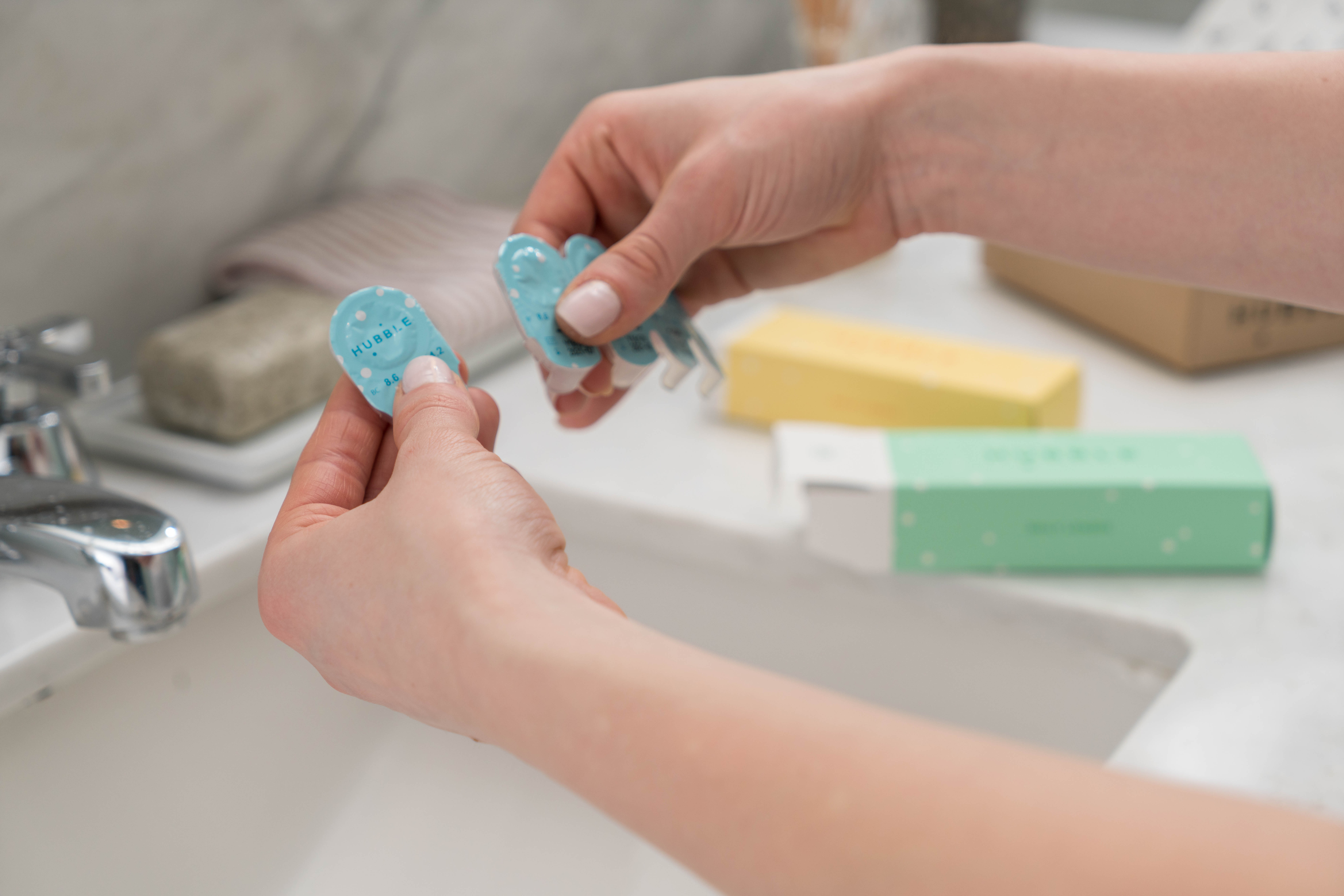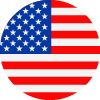How to Choose the Best Contact Lenses

Contact lenses are a popular choice for those looking for an alternative to glasses. However, with many different types of contacts available, choosing the best contact lenses for your specific needs can be a challenge.
There are a variety of considerations to take into account when choosing contacts, including the type of lenses, eye conditions, prescription, and others. Whether you're searching for the best daily contact lenses or seeking the best prices contact lenses offer, this guide will illuminate your path.
Understanding the myriad of choices, from the best online contact lenses to the specific types suited for various eye conditions, is crucial. Dive into this comprehensive guide to determine which contacts are the perfect match for you.
Are Contacts the Right Fit For You?
Arguably the most important step in choosing contacts is making sure that contacts are generally a good fit for your needs. There are a number of key differences between glasses and contacts, and understanding the pros and cons of each can be helpful in deciding which is the best fit.
Advantages of Contacts
Many people opt for contacts because the lenses sit directly on the eye, meaning they are essentially invisible, unlike glasses which have a direct impact on appearance and can be difficult to manage during sports or other activities. This also helps to create a greater field of view and better peripheral vision because there is no physical object in the way.
Because of their close proximity to the eye, contact lenses may provide better vision correction than glasses as well. Contacts tend to bend light more effectively, resulting in a better prescription fit, and ultimately, better visual acuity.
Drawbacks of Contacts
Though contacts are a good fit for most, there are some disadvantages when compared to glasses. While contacts can perform better than glasses, they also typically cost more. For those with bi-weekly or monthly lenses, contacts require daily cleaning and care which can be tedious. Contacts may also cause irritation or dryness, and some individuals may not be able to tolerate them at all.
That being said, the best way to understand if contacts are right for you is to try them. While they do have some drawbacks, trying them for yourself will help provide clarity on whether the pros outweigh the cons.
What Are the Best Contact Lenses for Me?
Choosing the best contact lenses is a blend of personal preference, lifestyle, and specific eye needs. While some may prioritize convenience, others might lean towards cost-effectiveness. Here, we break down the popular types of contact lenses to help you discern which might be the ideal fit for you.
Daily Disposable Contact Lenses
Daily disposable contact lenses, often touted by doctors as the best way to wear contact lenses, are designed for a single day's use and are discarded at day's end. They stand out for their convenience, eliminating the need for cleaning or storing. This makes them a hygienic choice, reducing the risk of infections. They're especially suitable for those with active lifestyles or those who would prefer not to commit to a daily cleaning routine. Additionally, daily disposables can be a boon for those prone to allergies, as there's less buildup of pollen or other irritants over time. However, in some cases, they could be a pricier option in the long run compared to their reusable counterparts.
Wearing a new lens every day is oft considered the safest and most comfortable way to wear contacts, which is why Hubble sells a wide range of daily disposable lenses to fit your needs and budget.
Our original Classic by Hubble single vision soft contact lenses are designed for easy insertion, all-day comfort, and crystal-clear vision. Plus, your first purchase of a 15-day starter pack will only set you back $1.00!
The newest addition to our product line, SkyHy and Hydro by Hubble provides the moisture retention you need for all-day wear. Plus, we’ve got you covered here too with a first-order discount!

Two-Week and Monthly Contact Lenses
Two-week and monthly contact lenses are designed for repeated use over their respective durations. They require nightly cleaning and proper storage to maintain their condition and hygiene. In some cases, these lenses can be more cost-effective than daily disposables, making them a popular choice for those seeking the best prices contact lenses offer without compromising on quality.
They're crafted from materials that retain moisture, ensuring comfort over extended wear. However, they do demand a consistent care routine to prevent protein buildup and potential eye infections. For those willing to invest a few minutes each day for care, these lenses offer both quality vision correction and value.
6 Things to Consider When Choosing the Best Contact Lenses
Once you’ve decided that contacts are a good fit for you, the next step is to choose the best contact lenses to fit your specific needs. Your eye doctor can be a great resource for understanding which contacts will work best for you, but knowing what to consider ahead of time can allow you to ask questions and understand the recommendations better—or even ask for a specific type of contact lenses up-front.

1. Lens Material
There are two main types of contact lens materials, known as hard/rigid and soft contact lenses.
Rigid Gas Permeable (RGP) lenses—sometimes referred to as hard contact lenses—don’t bend or fold. These lenses have high durability and resistance to buildup compared to soft contact lenses. They tend to provide clearer vision as well. However, they generally are not as comfortable, particularly when getting used to wearing them, and they require more thorough cleaning and disinfection.
On the other hand, soft contact lenses are made of hydrogel or silicone hydrogel, a gel-like plastic that is more flexible. These materials typically offer more initial comfort compared to RGP lenses. Because of their improved comfort, soft contact lenses are the more common option.
It should be noted that, while RGP lenses are sometimes referred to as hard contact lenses, they aren’t the same as the original hard contact lens option. These old-fashioned lenses are made of a rigid plastic called PMMA and are almost never prescribed today.
2. Wear Schedule
The wear schedule of contacts is how the lenses are intended to be worn and when they should be taken out and disinfected.
Daily wear contacts are the most common option. These lenses are worn throughout the day and then removed each night and placed in a contact lens case with fresh solution. This helps disinfect the lenses and prepare them to be used again the following day.
Extended wear contact lenses can be worn overnight. These lenses are typically designed to be worn from one to six nights, but some can be worn for up to 30 days. These lenses work best for those with lifestyles that may prevent them from removing lenses at night, such as military personnel or emergency service workers.
That being said, extended wear contacts can still lead to eye infections, which is one of the primary risks of leaving contacts in your eyes overnight. This is especially true for daily wear contacts which don’t allow as much oxygen to pass through to the eye compared to extended wear lenses.
3. Replacement Schedule
Similar to wear schedule, contacts feature differing replacement schedules that determine how often new lenses should be used.
Daily replacement lenses are designed to be used once. Instead of soaking these lenses in solution overnight, the lenses are discarded and a new pair is used the next day. This can help reduce the risk of irritation, dry eyes, or even infection being that a new pair of lenses is being used daily.
Other replacement schedules are typically grouped together and referred to as planned replacement contact lenses. These schedules can vary, but the most common options are two-week or monthly replacements. Planned replacement lenses typically come in a wider variety of options compared to daily use lenses, and they are often more affordable. Because they aren’t discarded as frequently, they are also more environmentally friendly.
4. Lens Prescription and Shape
Your eye care provider will work with you to prescribe contact lenses in the shape that will work best for you. Knowing how to read your contact lens prescription is important when purchasing new contacts.
Spherical contact lenses are a common option as they can treat both nearsightedness and farsightedness. Like glasses, contact lenses can also be bifocal or multifocal for those with presbyopia.
For those with astigmatism, a toric lens is commonly used. Astigmatism is a common eye issue that can cause vision to be distorted. This is caused by an irregularly shaped cornea. Because of this irregular shape, astigmatism can’t be corrected with spherical lenses. Toric lenses have a cylindrical shape that is designed to correct astigmatism.
Did you know? A wide selection of contact lenses for toric and astigmatism can be found on Hubble Contact’s sister site: ContactsCart.
5. Lens Color
In addition to functional considerations, you may opt for contact lenses that enhance or change the color of your eyes. There are a variety of colored lenses available, ranging from traditional eye colors to eccentric colors or eye types, such as cat eyes.
Obtaining a prescription for colored contacts from your eye doctor is perfectly safe; however, some stores or websites also offer colored contacts that are not FDA-approved. Because these contacts aren’t vetted by the FDA, wearing them can result in damage to the eye that may even result in blindness.
Looking for guaranteed FDA-approved colored and enhancing contact lenses? Try ContactsCart, the sister site of Hubble Contacts.
6. Cost
Taking everything else into consideration will be helpful in determining your exact needs, but ultimately, the contact lenses you choose need to fit your budget. The cost of contacts will vary depending on many of the factors listed above, but it will also be influenced by the brand you choose.
When considering cost, understanding your most basic necessities can help form a baseline for what you should expect to pay for contacts. Work with your eye doctor to find the best value for your needs. Prices may also vary depending on how you order contacts—whether through your eye care provider or online. For example, Hubble offers contacts online that start at $1.
Visit Your Eye Doctor
Choosing the best contacts to suit your needs can be a challenging process. In order to get the best contact lenses, you should visit an eye care professional for eye exams regularly. Getting your eyes checked every year will help you maintain good eye health and keep your contact lens prescription up-to-date. Your eye doctor can also help answer any questions you have regarding the best contact lenses for your needs.
An incorrect prescription or a poor fit can lead to issues and potential damage to the eye. Consult with your eye doctor before purchasing contact lenses to ensure you’re getting optimal performance while minimizing potential risks.
If you’re looking for an optometrist Hubble Contacts can help you find a doctor.
Additionally, visit our Free Online Vision Tests page to learn if you’re eligible to renew your existing contact lens prescription right from your home in ten minutes or less!
Best Online Contact Lenses: Subscription Options and More
The digital age has revolutionized the way we shop, and contact lenses are no exception. Purchasing contact lenses online offers unparalleled convenience, allowing you to browse and buy from the comfort of your home.
Many online platforms have followed in Hubble’s footsteps and offer subscription models, ensuring you never run out of lenses. However, no one else is quite as committed to making ordering contact lenses online as hassle-free and affordable as possible.
A Hubble subscription puts you in control: decide on the refill frequency that fits your lifestyle, and then we prep, pack, and ship your contact lenses right to your door. The best part of your subscription is that your contacts are set to arrive like clockwork, without the need to remember to constantly re-order or worry about running out. And of course, you can modify or cancel your subscription at any time in the Hubble Member Portal.
Whether you're a seasoned contact lens wearer or a newbie, Hubble is the best place to order contacts online with a seamless purchase experience, personalized delivery cadence, and always available customer support to guide you through your purchase.
Contact Lenses at the Best Price
Value for money is a significant factor for many when choosing contact lenses. With the vast array of options available, finding the best prices contact lenses offer might seem like searching for a needle in a haystack. However, with a bit of research and patience, it's entirely possible to find high-quality lenses that don't break the bank.
Many online retailers, like Hubble, offer competitive prices, exclusive deals, and first-order discounts. Remember, the cheapest option isn't always the best in terms of quality, so ensure you're balancing cost with the lens's performance, comfort, and health considerations.

Choose the Best Contact Lenses Today
Using the information above, you can be confident in choosing your next pair of contacts. Being mindful of the different types, shapes, and uses can help you make an informed decision—and consulting with your eye doctor will ensure that you’re on the right track.
Once you’ve made a decision, you can choose to purchase your contact lenses through your eye doctor or online. Purchasing contacts online is a great way to shop your options from the convenience of your home—and it can provide savings as well. For example, Hubble aims to make daily disposable contact lenses affordable and accessible to all. With Hubble, you can get all the benefits of daily wear contacts coupled with rigorously tested, FDA-approved lenses that start at $1.
See what people are saying about Hubble, and get started with your own pair of Hubble contacts today.

